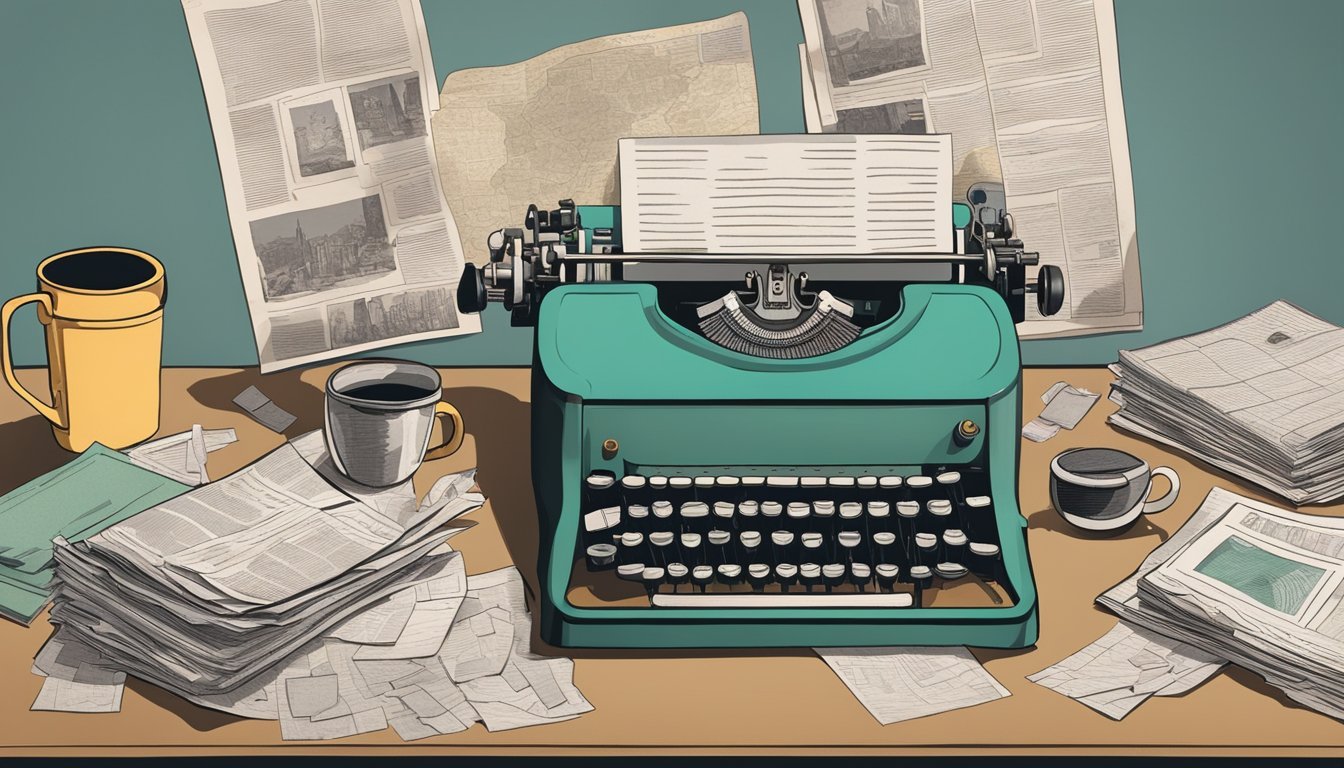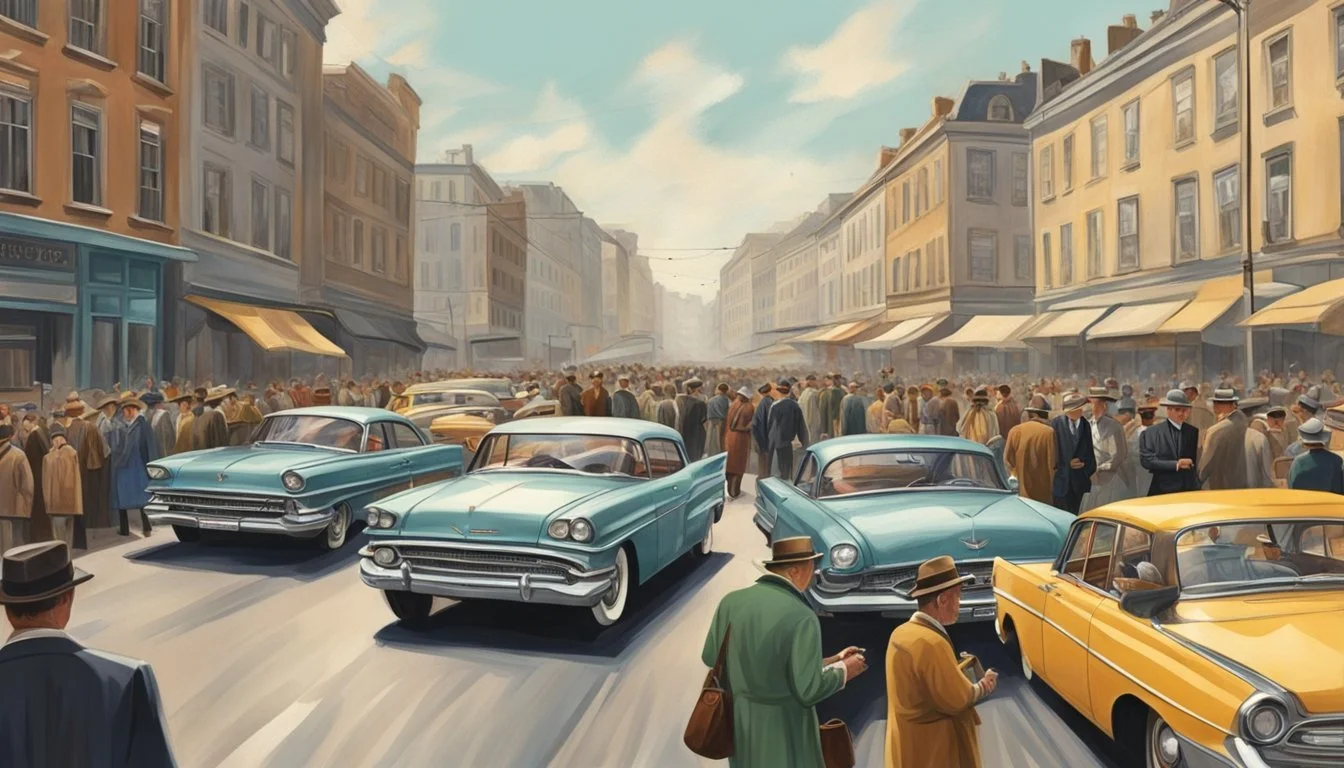11/22/63: 9 Documentaries Investigating the JFK Assassination
Exploring Evidence and Theories
The assassination of President John F. Kennedy on November 22, 1963, remains one of the most scrutinized events in American history. Countless documentaries have explored this tragic incident from various angles, seeking to uncover new insights and perspectives on what transpired that fateful day in Dallas.
These films delve into the evidence, eyewitness accounts, and theories surrounding the assassination, offering viewers a chance to examine the case for themselves. From official investigations to alternative hypotheses, the documentaries present a range of viewpoints on the events that shocked the nation and continue to captivate public interest decades later.
1) JFK Revisited: Through the Looking Glass
Oliver Stone's 2021 documentary reexamines the assassination of President John F. Kennedy. The film draws on newly declassified evidence to shed light on the events of November 22, 1963.
Stone, known for his 1991 feature film "JFK," presents a fresh look at the circumstances surrounding Kennedy's death. The documentary premiered at the 2021 Cannes Film Festival.
Narrated by Donald Sutherland and Whoopi Goldberg, "JFK Revisited" explores various aspects of the assassination. It delves into forensic evidence, witness testimonies, and official documents.
The film challenges the official narrative of a lone gunman. It presents alternative theories and raises questions about potential conspiracies.
Stone's documentary aims to provide a comprehensive examination of the assassination. It incorporates interviews with experts and individuals connected to the case.
"JFK Revisited: Through the Looking Glass" offers viewers a detailed exploration of one of America's most debated historical events.
[https://en.wikipedia.org/wiki/JFK_Revisited:_Through_the_Looking_Glass]
2) The Men Who Killed Kennedy
"The Men Who Killed Kennedy" is a controversial documentary series that explores alternative theories surrounding President John F. Kennedy's assassination. Originally broadcast in 1988 by British television network ITV, the series initially consisted of two parts.
The documentary expanded over time, with additional episodes added in subsequent years. It delves into various conspiracy theories and presents interviews with witnesses and researchers who challenge the official narrative of the assassination.
Directed by Nigel Turner, the series examines discrepancies in the government's official version of events. It features testimonies from experts, including forensic pathologists and ballistics specialists, who offer alternative interpretations of the evidence.
The documentary gained attention for its bold claims and provocative content. It suggests the involvement of multiple shooters and implicates various individuals and organizations in the assassination plot.
While the series has faced criticism for its speculative nature, it remains a notable entry in the realm of JFK assassination documentaries. It continues to spark debate and discussion among those interested in this pivotal historical event.
Wikipedia: The Men Who Killed Kennedy
3) JFK: The Smoking Gun
JFK: The Smoking Gun is a thought-provoking documentary that offers a fresh perspective on the assassination of President John F. Kennedy. Released in 2013, the film is based on the investigative work of Australian detective Colin McLaren.
McLaren spent four and a half years conducting a forensic cold case investigation into Kennedy's assassination. The documentary presents his findings, which suggest the possibility of a second shooter in Dealey Plaza on that fateful day in 1963.
The film utilizes modern technology and examines all available evidence, facts, and eyewitness testimony. It aims to provide a comprehensive analysis of the events surrounding Kennedy's murder.
JFK: The Smoking Gun explores the ballistics evidence presented by expert Howard Donahue. The documentary meticulously examines the details of the assassination, offering viewers a detailed look at the forensic aspects of the case.
While the film presents intriguing theories, it's important for viewers to approach its conclusions critically and consider them alongside other research on the topic.
https://www.imdb.com/title/tt3205384/
4) Killing Kennedy
Killing Kennedy is a television film that premiered on National Geographic Channel in 2013. Based on the book of the same name by Bill O'Reilly and Martin Dugard, it dramatizes the events leading up to President John F. Kennedy's assassination.
The film stars Rob Lowe as JFK and Will Rothhaar as Lee Harvey Oswald. It follows the parallel lives of Kennedy and Oswald in the years and months before their fateful encounter in Dallas on November 22, 1963.
Killing Kennedy provides a dramatized look at key moments in both men's lives. It explores Kennedy's presidency and personal life alongside Oswald's growing disillusionment and radicalization.
The film received mixed reviews from critics but drew a large audience for National Geographic. It was praised for its performances and production values, though some found its portrayal of events oversimplified.
Killing Kennedy offers viewers a cinematic interpretation of the assassination and the events surrounding it. While not a documentary, it aims to provide historical context through dramatic recreations.
5) JFK: A Presidency Revealed
JFK: A Presidency Revealed offers an in-depth look at John F. Kennedy's time in office. The documentary explores Kennedy's political career, personal life, and the challenges he faced as president.
The film examines Kennedy's handling of critical events like the Cuban Missile Crisis and the Civil Rights Movement. It provides insights into his decision-making process and leadership style during these pivotal moments in American history.
Interviews with historians, former staff members, and Kennedy family associates offer unique perspectives on the 35th president. These firsthand accounts shed light on Kennedy's personality and relationships both in and out of the White House.
The documentary also delves into lesser-known aspects of Kennedy's presidency, including his health issues and how they affected his work. It presents a balanced view of his achievements and shortcomings as a leader.
JFK: A Presidency Revealed aims to provide a comprehensive portrait of Kennedy beyond the public image. The film offers viewers a nuanced understanding of his brief but impactful tenure as president.
https://www.imdb.com/title/tt0403778/
6) JFK's Secret Killer: The Evidence
This 2013 documentary explores an intriguing theory about the assassination of President John F. Kennedy. Directed by Malcolm Mcdonald, the film presents a controversial perspective on the events of November 22, 1963.
The documentary features Colin McLaren, an Australian detective, who investigates the possibility that a Secret Service agent accidentally fired the fatal shot. This theory challenges the official narrative of Lee Harvey Oswald as the lone gunman.
McLaren's investigation draws on ballistics evidence and eyewitness accounts to support his hypothesis. The film examines the positioning of Secret Service agents and the chaos that unfolded in the moments after the first shots were fired.
While the documentary provides an alternative view of the assassination, it remains a subject of debate among historians and researchers. The film encourages viewers to critically examine the evidence and draw their own conclusions about this pivotal moment in American history.
IMDb: JFK's Secret Killer: The Evidence
7) Who Was Lee Harvey Oswald?
"Who Was Lee Harvey Oswald?" is a FRONTLINE documentary that delves into the life of JFK's alleged assassin. The film traces Oswald's journey from childhood to the fateful day in Dallas on November 22, 1963.
The documentary explores key questions surrounding Oswald's involvement in the assassination. It examines whether he was a disturbed lone gunman, part of a larger conspiracy, or an unwitting scapegoat.
Through interviews and archival footage, the film provides insights into Oswald's personality and motivations. It presents various perspectives, including that of Oswald's older brother, who supports the Warren Commission's conclusion.
The three-hour special offers a comprehensive look at Oswald's background, relationships, and activities leading up to the assassination. It aims to shed light on one of the most enigmatic figures in American history.
By investigating Oswald's life, the documentary contributes to the ongoing discussion about the JFK assassination and its lasting impact on American society.
https://www.pbs.org/wgbh/frontline/documentary/oswald/
8) The Kennedy Assassination: 24 Hours After
This documentary offers a unique perspective on the day President John F. Kennedy was assassinated. It focuses on the crucial 24-hour period following the tragic event in Dallas on November 22, 1963.
The film explores the sudden transfer of power to Vice President Lyndon B. Johnson. It examines how Johnson navigated his first day as President while the nation grappled with shock and grief.
New details about the timing of Kennedy's death are revealed. The documentary also sheds light on the circumstances surrounding Johnson's oath of office aboard Air Force One.
Viewers gain insight into the challenges Johnson faced in securing the trust of a devastated nation. The film highlights the importance of these initial hours in shaping the country's response to the assassination.
By concentrating on this brief yet pivotal timeframe, the documentary provides a focused examination of a critical moment in American history.
https://www.imdb.com/title/tt1547206/
9) Parkland
Parkland is a 2013 American historical drama film that recounts the chaotic events surrounding President John F. Kennedy's assassination. The movie focuses on the staff at Parkland Memorial Hospital in Dallas, where Kennedy was taken after being shot.
Directed by Peter Landesman, Parkland brings to life the frantic efforts to save the president's life. It depicts the shock and confusion experienced by doctors, nurses, and other hospital personnel as they grappled with the unfolding tragedy.
The film features an ensemble cast including Zac Efron, Paul Giamatti, and Billy Bob Thornton. It offers a unique perspective on the assassination by centering on the immediate aftermath rather than the conspiracy theories that often dominate JFK-related media.
Parkland provides a raw, emotional portrayal of one of America's most traumatic moments. It humanizes the event by showing the impact on ordinary people thrust into extraordinary circumstances.
https://en.wikipedia.org/wiki/Parkland_(film)
Historical Context
President John F. Kennedy's assassination on November 22, 1963 shocked the nation and changed the course of American history. The event occurred during a time of social and political upheaval, leaving an indelible mark on the collective consciousness.
Background of the JFK Presidency
John F. Kennedy took office in 1961 as the youngest elected president in U.S. history. His charismatic leadership style and ambitious agenda captivated many Americans. Kennedy faced significant challenges during his presidency, including the Cold War, civil rights movement, and space race.
The Bay of Pigs invasion and Cuban Missile Crisis tested his foreign policy acumen. Domestically, he pushed for civil rights legislation and economic reforms. Kennedy's "New Frontier" program aimed to address poverty, education, and healthcare issues.
His presidency was marked by a sense of optimism and cultural change. The First Family's youthful image and Kennedy's eloquent speeches inspired many citizens. However, his policies also drew criticism from various political factions.
Overview of the Assassination Event
On November 22, 1963, President Kennedy was riding in an open-top limousine through downtown Dallas, Texas. At 12:30 PM, shots rang out as the motorcade passed through Dealey Plaza. The president was struck twice and rushed to Parkland Memorial Hospital.
Kennedy was pronounced dead at 1:00 PM. Vice President Lyndon B. Johnson was sworn in as the new president aboard Air Force One later that day. Lee Harvey Oswald was arrested and charged with the assassination, but was himself killed two days later by Jack Ruby.
The Warren Commission, established to investigate the shooting, concluded Oswald acted alone. This finding has been disputed by many researchers and critics over the years. The assassination's impact reverberated throughout American society, sparking numerous conspiracy theories and debates that continue to this day.
Investigative Approaches
The JFK assassination has sparked numerous inquiries and independent research efforts. These approaches have employed diverse methods to examine evidence and develop theories about the events of November 22, 1963.
Government Inquiries and Their Findings
The Warren Commission, established by President Lyndon B. Johnson, concluded that Lee Harvey Oswald acted alone in assassinating Kennedy. This official investigation relied on witness testimonies, physical evidence, and forensic analysis.
The House Select Committee on Assassinations (HSCA) reopened the case in the late 1970s. It suggested a probable conspiracy based on acoustic evidence, contradicting the Warren Commission's single-shooter theory.
The Assassination Records Review Board, created in 1992, focused on declassifying and releasing government records related to the assassination. This effort aimed to increase transparency and public access to information.
Independent Research and Theories
Private investigators and researchers have conducted their own studies, often challenging official narratives. Some have analyzed photographic and film evidence, such as the Zapruder film, to propose alternative scenarios.
Ballistics experts have reevaluated bullet trajectories and wound patterns. Their findings have sometimes conflicted with government conclusions, fueling debates about multiple shooters.
Witness accounts overlooked in official investigations have been reexamined by independent researchers. These testimonies have provided new perspectives on the events in Dealey Plaza.
Conspiracy theories have emerged, involving various alleged perpetrators. These range from organized crime to government agencies, reflecting public skepticism about official explanations.





